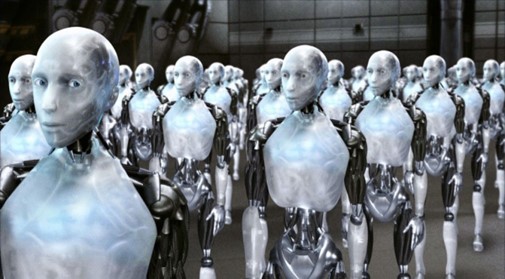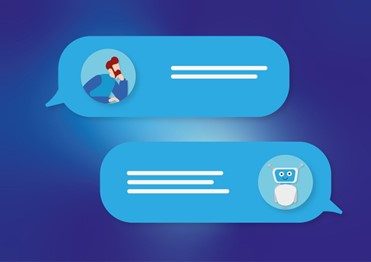
Don’t Forget Who Your Target Market Is!
Please note: Fractional CMO & Marketing does not take a side in such matters. We are purely interested in the impact different actions that businesses take can have on the marketing function overall.
We believe it’s important for companies to be involved in causes that are important to them. In fact, when we take on a new client, we encourage their management to develop a relationship with a charity that resonates with them (if they don’t have one already). It’s a wonderful thing for companies to want to further social causes. Some believe that large corporations with substantial financial means have the moral obligation to exercise good corporate citizenship by supporting causes for the greater good.

Despite their good intentions, sometimes, as companies attempt to fulfill what they perceive to be their societal duty, they ‘leap before they look’.
What do we mean by that? To put it bluntly, it’s foolish for companies to ignore the demographic, socioeconomic, and psychographic realities of their target customers when making marketing decisions. If a business wants to participate in social causes that may be seen as controversial by the market they serve and their owners (shareholders), they should consider the possible consequences such as lost sales, shrinking market share, and upsetting shareholders.

What Is Fractional CMO & Marketing?
Fractional CMO & Marketing is ‘Your Outsourced Marketing Department’ when you need expert marketing leadership and marketing services to accelerate growth and improve profitability, but you’re not quite ready to hire a full-time Chief Marketing Officer or your own marketing department.
Our unique arrangement is the most efficient, innovative, and cost-effective formula for you. Click on the image to the left to watch a short video.
We Help When You Need To:
- Generate more of the right kind of leads
- Close more sales faster
- Get repeat sales
- Formulate a more effective message
- Produce powerful sales tools
- Establish brand awareness, recognition, and preference
- Differentiate your brand from the competition
- Improve customer satisfaction and loyalty
- Develop lasting relationships with customers
- Introduce new products

Marketing Lingo: BudLighting (Bud-Lighting)
A very new term in marketing, “BudLighting” or “BudLighted” (as in “ABC Company really BudLighted that one!”) refers to a company launching an initiative, campaign, or product with subject matter that is mostly seen as controversial or unwelcomed by their target market and/or largest segment responsible for the majority of product sales.
Please note: Fractional CMO & Marketing does not take a side in such matters. We are purely interested in the impact different actions that businesses take can have on the marketing function overall.

* ‘Marketing Lingo’ is a regular column in which we define, or otherwise explain, terms often used in marketing but not necessarily correctly or properly by some. You may see a glossary of marketing terms’ definitions here.



Disney Star Wars Hotel Is An Epic Failure Because….
There’s no doubt that visiting a Disney property costs plenty of greenbacks. Whether you want to visit Disney World or Disneyland, you are probably prepared for a major monetary hit. Unfortunately for the Disney corporation, most were not ready to spend $3,000 a night for a hotel room at the Galactic Cruiser hotel. And from that, it makes sense to conclude that $20,000 for a suite would be absolutely unreasonable too! This is another example of the importance of being knowledgeable about your target audience and existing customers.

Price wasn’t the only issue Disney fans brought up regarding the Star Wars themed hotel. The property doesn’t offer any outdoor views from the rooms. Florida offers gorgeous landscape, and this lodging option not only robbed visitors of the state’s beauty, but also created claustrophobia in many who chose this hotel for their Disney vacation. Even the interactive – often described as “participation is made to feel obligatory” – cosplay presentations during meals and the attention put toward the property looking like a spaceship couldn’t overcome the hefty cost and trapped-in feeling Star Wars fans felt while staying at this property.
Star Wars Galactic Cruiser started welcoming guests in March 2022, and the doors will close a few days before the end of September 2023. The themed hotel has only 100 rooms, and Disney has struggled since opening to fill even that modest number.
Even die-hard fans of the Disney corporation are sounding off on this egregious misstep. “This is actually hilarious. They were adamant about having the Star Wars brand as the reason people spent thousands a night for the hotel, yet it has backfired tremendously,” opined a Reddit user.
Upon the hotel’s opening, critics were able to tell the future, pointing out the crazy cost of rooms, claustrophobic rooms, questionable food choices, and weird add-ons (like photo sessions). Even the outside of the hotel was off putting. “It looks like an actual maximum security prison from the exterior. What a waste of money for everyone,” a Disney fan commented.

Disney marketed an immersive encounter, allowing hotel guests to mingle with characters, but those who tried the experience were not impressed with their stay, especially when considering the exorbitant price tag. A Reddit user shared the following: “Hmmmm…so you mean to tell me that Disney opened a crappy, cinder-block hotel filled with bad cosplay, cheap sets, silly acting theatre, basic arcade games, cell-like beds, and bland space windows, charged $5,000+ for a two-night stay…and somehow, this did not attract the average person into purchasing said experience enough to keep it afloat?”
Disney has had so many successes, but it’s pretty clear that the Star Wars Galactic Cruiser hotel is not among them.




